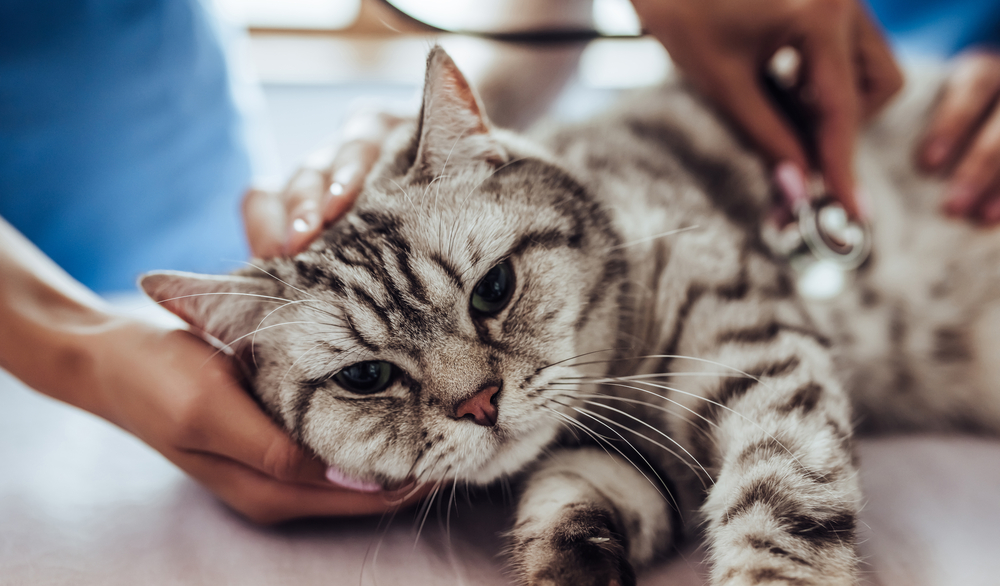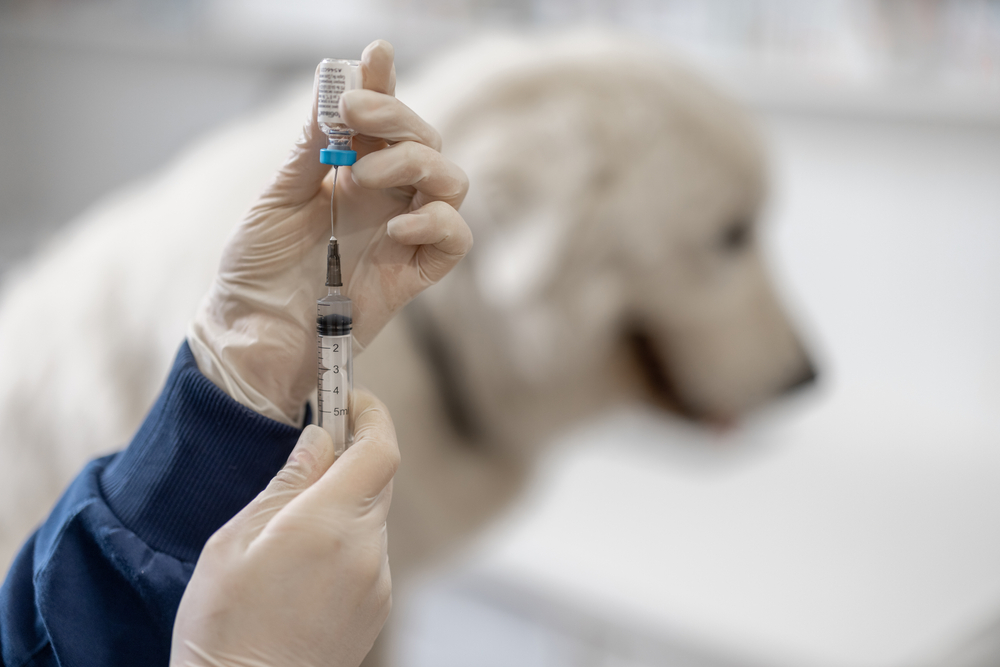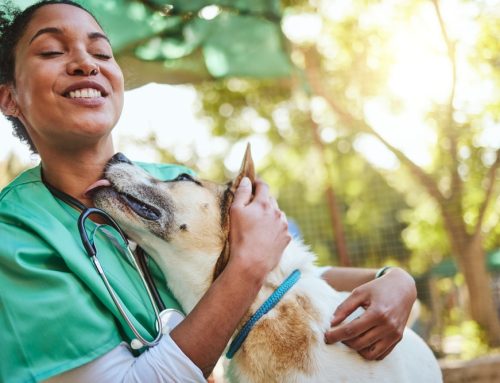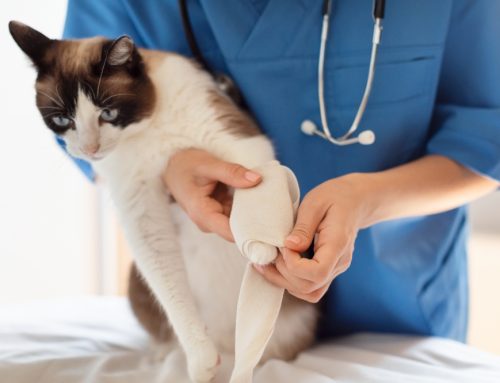When your pet needs vaccinations, they don’t just receive every shot available for their species. A lot of careful thought and consideration is put into formulating a pet’s vaccination protocol, and each pet receives lifestyle-appropriate vaccines designed to keep them as healthy as possible.
During your pet’s wellness visit, our Lytle Veterinary Clinic team will ask you several questions so we can assess your furry pal’s exposure risk and determine the most effective vaccination protocol that will help keep your pet safe. Learn the differences in vaccine types, and how we choose which vaccines your pet should receive.
Core versus noncore vaccines for dogs and for cats
Pets’ vaccines are divided into two categories: core and noncore. Core vaccines are those that every cat or dog should receive, regardless of lifestyle factors. Noncore vaccines are administered based on a variety of factors that influence the best vaccination protocol for your pet’s protection.
- Core vaccines for dogs — All dogs should receive all core vaccinations. The rabies vaccination is required by law in most U.S. municipalities. Dogs’ core vaccines include:
- Distemper
- Adenovirus
- Parvovirus
- Rabies
- Noncore vaccines for dogs — Depending on the geographic location in which you live or plan to travel with your dog, our veterinarian will recommend certain noncore vaccines. Depending on your dog’s lifestyle, our veterinarian may recommend any of the following vaccinations:
- Leptospirosis
- Lyme disease
- Bordetella bronchiseptica
- Canine influenza and parainfluenza
- Rattlesnake toxoid
- Core vaccines for cats — All cats should receive all core vaccinations. Cats’ rabies vaccination is required by law in most U.S. municipalities. Cats’ core vaccines include:
- Feline viral rhinotracheitis
- Calicivirus
- Panleukopenia
- Rabies
- Core vaccine for kittens and noncore for adult cats — Veterinarians consider the feline leukemia virus (FeLV) vaccination as a core vaccine for all cats younger than 12 months of age. The FeLV vaccination becomes a noncore vaccination for adult felines.
Factors that influence which vaccines your pet needs
Our Lytle Veterinary Clinic team treats each pet as an individual. Although we follow general guidelines for cats and dogs, each pet receives a customized vaccination protocol, rather than a one-size-fits-all version. Before your four-legged friend receives vaccinations, we carefully consider five factors.
#1: Your pet’s age
In general, younger pets require more vaccinations at more frequent intervals. The immunity puppies and kittens receive from their mothers quickly wanes, so they must undergo serial vaccinations to build their own immune systems. Typically, a puppy or a kitten receives their vaccination series between 6 and 9 weeks of age and then receives booster vaccinations every three to four weeks until they reach 15 to 16 weeks of age.
While adult and senior pets still require annual or biannual wellness exams, they may not need vaccinations at each visit. Many core vaccines provide immunity that lasts for three years, and our team may be able to perform titer testing to determine whether a pet’s immunity continues to protect them.
#2: Your pet’s previous vaccination history
A pet who has undergone appropriate vaccination since they were young will require vaccines at an interval different from that of an adult stray or rescued pet. Our Lytle Veterinary Clinic team treats pets with unknown vaccination histories the same way we treat puppies and kittens. To ensure a pet with an unknown vaccination history develops sufficient immunity, they receive the same core vaccinations as other young dogs and cats. Otherwise, we place adult pets on an annual noncore vaccine schedule, and they receive core vaccine boosters every three years.
#3: Your pet’s exposure to other animals
If your dog attends daycare, training classes, or canine sporting events, they will require comprehensive vaccination against respiratory illnesses, such as Bordetella bronchiseptica, canine influenza, and parainfluenza. However, if your canine companion only has human friends and never leaves their yard or stays at a boarding facility, their exposure risk is minimal and they won’t need this additional protection.
Our team also considers if you frequently welcome new pets into your home. If you foster pets until they find a family, or take in stray cats to rehabilitate, your pet will need multifaceted protection to help ensure they stay healthy.
#4: Your pet’s lifestyle
Some pets are homebodies who never poke a whisker past their property line, while others have an adventurer’s soul. If your feline friend refuses to take part in leash-and-harness training and would rather survey the outdoors from their lofty indoor climbing tower, they won’t require the leukemia vaccine as an adult cat. In addition, if your dog is constantly poking their nose into all sorts of vegetation that houses hidden wildlife, keeping them current on vaccinations for leptospirosis, Lyme disease, and rattlesnake toxoid is ideal.
#5: Your pet’s health status

While few health conditions preclude pets from being vaccinated, especially for rabies, certain medical issues can limit the vaccinations our team administers. Severe, life-threatening vaccine reactions are rare, but they can prevent your pet from being safely vaccinated, so alternative safety measures must be put in place. Autoimmune diseases and terminal illnesses can also affect your pet’s vaccination protocol.
Are you unsure which vaccines your pet needs to stay healthy? Schedule your furry pal’s next wellness visit with our Lytle Veterinary Clinic team and discuss the best vaccination protocol for your pet.







Leave A Comment